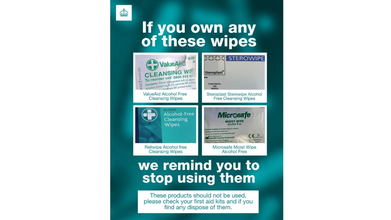- Health Conditions A-Z
- Health & Wellness
- Nutrition
- Fitness
- Health News
- Ayurveda
- Videos
- Medicine A-Z
- Parenting
Trump Suggests Changes In Childhood Vaccines, Says It Is Based On What He Feels

Credits: White House
The Monday announcement by President Donald Trump was not just limited to the link between Tylenol, a popular pain medicine and autism, but also an attack on vaccines. Health and Me has previously covered how the vaccine policies have changed ever since RFK Jr. has been appointed as the Health Secretary. Trump's announcement further seconded the same. He went as far as saying that children should not get their first hepatitis B vaccines until they are 12 years old.
Also Read: How Has RFK Jr Changed The Vaccine Policies In The US?
Here Are All The Claims Trump Made About Vaccines, And Why They Don't Hold Scientific Value, According To Doctors
Hepatitis B
Trump said children should not receive the hepatitis B vaccine until they are 12 years old, contradicting long-standing recommendations to vaccinate newborns. He said, "Hepatitis B is sexually transmitted. There’s no reason to give a baby that’s almost just born hepatitis B. So I would, say, wait till the baby is 12 years-old and formed.”
Experts have pointed out that his claim ignores decades of medical evidence. The CDC’s Advisory Committee on Immunization Practices has recommended hepatitis B vaccination for newborns since 1991, as it prevents chronic liver infections and serious long-term damage.
Doctors stress that if a mother has hepatitis B, giving the newborn both the vaccine and immune globulin immediately after birth is crucial to prevent transmission.
Read: What Is Leucovorin - The Drug Trump Suggests As A Treatment For Autism?
MMR Vaccines And Number Of Vaccines Given To Children
He also declared that MMR vaccines, used against measles, mumps, and rubella must be administered separately "based on what I feel".
Trump’s suggestion to split the MMR vaccine “based on what I feel” was dismissed by health experts as lacking scientific basis.
His claim that babies are “loaded up” with as many as 80 vaccines. He said, "They pump so much stuff into babies, it is a disgrace". However, the claim is false. Experts criticized this statement as misleading and dangerous, likely to stoke unnecessary fear.
Read: Tylenol And Autism: Trump Announces Link Between The Two, Science Does Not Back Him
Covid-19 Vaccinations
Trump, during his first administration has been highlight critical of the Covid-19 vaccination. He in fact, suggested scientists to study the injection of bleach into the human body as a way to fight COVID. He also floated the idea of using UV light exposure inside the body to treat COVID patients.
Not only trump, but the now serving Health and Human Services Secretary, RFK Jr. is also a known conspiracy theorist and vaccine skeptic. He had been criticized for his radical views and for his contentious overhaul of the CDC.
Dan Jernigan, Director of the National Center for Emerging and Zoonotic Infectious Disease in fact condemned his actions and said, "What he is doing is not scientifically sound."
Another health expert Craig Spencer, MD, wrote on X that this was the "worst" health press conference he has ever witnessed. He wrote: "I'm absolutely speechless. Like, wow. This is the worst 'health' press conference I maybe have ever seen, and I watched every one during Covid. How are we doing this again???"
Mumbai Locals Suffer Burns After Hydrogen Filled Balloons Erupt In Lift

Credit: X
Two people have suffered burn injuries in Mumbai after a cluster of gas-filled balloons exploded and turned into a ball of fire inside a residential building’s lift earlier this week.
The incident occured at Anmol Towers, a residential building opposite a petrol pump in Mumbai's Goregaon West and police have registered a case against the balloon vendor, according to NDTV.
CCTV footage shows a woman entering the lift with a small trolley, followed by a man carrying several balloons packed in a large bag. Moments later, the balloons mysteriously caught fire, leading to the blast inside the elevator.
Despite flames briefly covering the CCTV camera, the woman and two men were seen running out of the elevator seconds later. In the end, the clip shows the elevator doors shutting as flames erupt at the centre of the lift.
It was unclear what type of gas was used to inflate the balloons. However, while many consumers assume decorative balloons are filled with helium, a non-combustible gas, authorities and safety experts suggest that it is highly possible that hydrogen was used instead.
Mumbai police have urged the public to exercise caution and warned balloon sellers against using flammable gases, particularly in residential buildings and enclosed areas.
Why Is Hydrogen Dangerous?
Hydrogen has a very wide range of flammability in air (4-75 percent by volume) and requires very low energy to ignite. It often causes explosions rather than just fires, especially in confined spaces.
In high concentrations in enclosed areas, hydrogen acts as a simple asphyxiant by displacing oxygen, which can lead to dizziness, unconsciousness, or death. Additionally, hydrogen fires burn with a nearly invisible, pale blue flame, making them almost impossible to detect with the naked eye during daylight.
Moreover, hydrogen gas also burns faster than most conventional fuels, increasing the risk of deflagration (subsonic) or detonation (supersonic).
On the other hand, as a noble gas, helium has a completely filled outer shell of electrons, meaning it does not react with other elements or catch fire in the presence of oxygen and heat.
Along with this, unlike hydrogen, which is also lighter than air but highly explosive, helium will not ignite even if exposed directly to a flame or spark and it can can act as a buffer and actually suppress flames by displacing oxygen in the immediate area.
What To Do If You Suffer From Burns?
For minor burns, immediately run cool (not cold) water over the area for 10–20 minutes, remove jewelery or tight clothing near the injured area and cover with a sterile bandage. A minor burn might need emergency care if it affects the eyes, mouth, hands or genitals.
However, for serious and large burns, protect the burned person from further harm and ensure that they are breathing. Loosely cover the area with gauze or a clean cloth and raise the burned area above heart level, if possible.
As you call emergency services, watch for symptoms of shock which include cool, clammy skin, weak pulse and shallow breathing.
Seek immediate care for burns, which:
- May be deep, involving all layers of the skin.
- May cause the skin to be dry and leathery.
- May appear charred or have patches of white, brown or black.
- Are larger than 3 inches (about 8 centimeters) in diameter.
- Cover the hands, feet, face, groin, buttocks or a major joint, or encircle an arm or a leg.
- Are accompanied by smoke inhalation.
- Begin swelling very quickly.
Globally, about 10 million people experience burns and about 180,000 die from them each year.
Nipah Virus Fatality Reported in Bangladesh, One Woman Dead

A woman with no travel history has died from Nipah virus in Bangladesh, the World Health Organization has confirmed.
The patient, aged between 40 and 50, developed a fever and headache-like symptoms consistent with the virus, followed by hypersalivation, disorientation and convulsion on 21 January.
The case was reported in the northern Naogaon district, Sharmin Sultana, senior scientific officer at the Institute of Epidemiology, Disease Control and Research, later said.
She died on January 28 and was confirmed to be infected with the virus the day after. Although she had no travel history, she regularly consumed raw date palm sap, reports suggest.
The WHO said all 35 people who had contact with the now-deceased patient were being monitored and have tested negative for the virus. No new cases had been detected to date.
Since its emergence in 2001, Bangldesh has reported cases of Nipah virus in humans every year. In 2025, four laboratory-confirmed fatal cases were reported in the country.
What's Happening In India?
The Nipah virus outbreak began in West Bengal, India in January with two hospital nurses at AIIMS, Kolkata, testing positive for the infection and being quarantined, prompting widespread testing. Soon after, five cases, including a doctor and a staff member, were confirmed and over 100 people were quarantined.
However, one of the nurses, a 25-year-old unidentified man has now made a recovery and revealed his experience with the virus, claiming that despite irritation in the throat and uncertainty about what lay ahead, he had faith in his doctors and fellow nurses.
In an interview with the Metro, he said: “After I was taken off ventilation and regained consciousness, I came to know that I have Nipah. I still had the tube in my mouth, and there was irritation. Despite the irritation and my fear, I had faith in the doctors and nurses.
“I have suffered and I know the symptoms. I will tell people when they should get checked for the Nipah virus. I want to raise awareness about the virus and its symptoms.
“I am not sure how I came in contact with the deadly virus. Maybe it was while treating a patient. But I will continue to work as a nurse. I am waiting to rejoin the hospital,” he added.
The unidentified healthcare professional remains very weak physically and is undergoing physiotherapy to regain his strength. “I was bedridden for over a month. I am still very weak and have an unstable gait. So, I am undergoing physiotherapy,” he said.
The other nurse, a woman, remains in a coma but has been taken off ventilation support, a hospital official confirmed this week.
Nipah Virus: What Is It And What Are Its Symptoms?
According to WHO, Nipah virus is a zoonotic illness which means it is mostly transmitted from animals to humans through bats. However, it can also spread through fruits that have been contaminated by the saliva, urine or droppings of infected bats. Human-to-human transmission can also occur through close contact with an infected person or their bodily fluids.
The illness has a 75 percent fatality rate, and there are no vaccines to protect the public.
The virus was first identified in 1998 during an outbreak among pig farmers in Malaysia and soon made its way to India and Bangladesh in 2001, with cases often involving family members or caregivers tending to the infected patient.
READ MORE: Nipah vs Bird Flu in India: Which Virus Poses A Greater Threat To Humans?
Although the Nipah virus has caused only a few known outbreaks in Asia, it infects a wide range of animals and causes severe disease and death in people. Some of its common symptoms include:
- Fever
- Headache
- Breathing difficulties
- Cough and sore throat
- Diarrhea
- Vomiting
- Muscle pain and severe weakness
Samples collected from the patient’s home and workplaces, including pets and partially eaten fruits dropped by bats, all tested negative for the virus, and the exact source of the infection could not be identified.
Wet Wipes Warning: Patient Dies Using An Infected, Non-Sterile Wipe

Credits: Canva
Wet Wipes Waring: 59 people have fallen ill, with one dead, after using non-alcoholic, non-sterile, infected wet wipes in UK. The UK Health Security Agency (UKHSA) and Medicines and Healthcare products Regulatory Agency (MHRA) issued a warning, and said that there is still "an ongoing risk of infection associated with their use". The bacteria that is causing this infection is burkholderia stabilis or B. stabilis.
Wet Wipes Warning: Which Ones Not To Use

The UKHSA also in its warning included names of four different wet wipes and asked people to avoid using them.
- ValueAid Alcohol Free Cleaning Wipes
- Stereoplast Sterowipe Alcohol Free Cleansing Wipes
- Reliwipe Alcohol Free Cleansing Wipes
- Microsafe Moist Wipe Alcohol Free
Wet Wipes Warning: What Actually Happened?
The Pharmaceutical Journal noted that the UKHSA and MHRA published a joint statement that warned people that they should not use non-sterile, non-alcoholic wipes in their homes and first-aid kits.
After an outbreak investigation conducted by MHRA in 2025, four products were identified to be contaminated with Burkholderia stabilis. “There have been 59 confirmed cases of Burkholderia stabilis associated with some non-sterile alcohol-free wipe products — identified in an outbreak in the United Kingdom from January 2018 to 3 February 2026,” the statement said.
“A small number of cases continue to be detected. These have included some serious infections which have required hospital treatment and one death has been attributed to Burkholderia stabilis infection.”
UKHSA and MHRA is telling people to look out for wipes marked 'sterile' to be used on wounds or broken skin.
Wet Wipes Warning: What Is Burkholderia Stabilis?
UKHSA on its official website notes: 'Burkholderia are a type of bacteria found naturally in the environment, including in soil and water. Burkholderia stabilis is one species within this group. While many people never encounter problems with this type of bacteria, it can cause serious infections in certain circumstances, particularly among vulnerable individuals.'
Read: Does Bigger Penis Help You Ski Better? Why Olympians Are Injecting Hyaluronic Acid - Explained
Wet Wipes Warning: Who Is At More Risk Of B. Stabilis Infection?
- Those with weakened immune systems – including people undergoing chemotherapy, organ transplant recipients, or those with conditions that affect immune function
- Individuals with other risk factors such as cystic fibrosis
- Patients at home with intravenous lines
Wet Wipes Warning: How Can Someone Get Infected By B. Stabilis?
The UKHSA notes: "The risk of acquiring infection is generally very low. Infections can occur through contact with contaminated products on broken or damaged skin, or through introduction of bacteria through medical devices such as intravenous lines."
Wet Wipes Warning: What Are The Common Symptoms Of B. Stabilis Infection?
- Symptoms of a wound infection can include redness, swelling, increased pain, warmth around a wound or or break in skin, and pus or other drainage from the wound / break in skin
- Symptoms of infection involving an intravenous line can include signs such as redness, swelling, or pain around the insertion site and / or fever and chills
- In more serious cases, symptoms associated with bloodstream infection (sepsis).
© 2024 Bennett, Coleman & Company Limited

